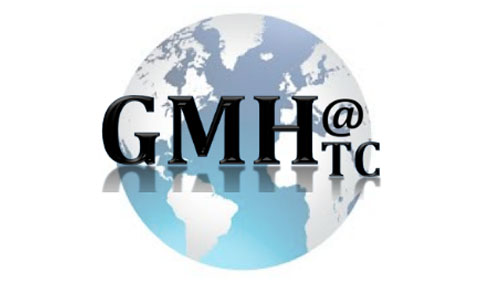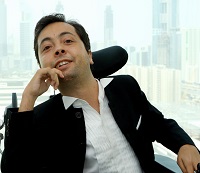Dates & Registration
Dates: January 14 - 18, 2026
Times: 9:00am - 5:00pm EST each day
Format: Online Modules with Live Zoom Sessions
Price: $1,000
- 25% discount will specifically be offered to all students (Teachers College/Columbia University and non-Teachers College/Columbia University)
- 25% discount will specifically be offered to all Teachers College/Columbia University alum
- 25% discount will be offered on the registration cost to groups of 3 or more participating from the same institution.
- 50% discount will be offered to participants from Low- and Middle-Income Countries. To see if you qualify, click here.
- 50% discount will be offered to participants with disabilities or lived experiences.
Discounts cannot be combined and registrants will receive the best discounted price.
Please Note: This course is offered on a non-credit basis or for 3 credits. Registration for this course through TC Academy is for the non-credit offering and Academic Credits will not be awarded. For instructions on how to register for the credit offering see below.
For more information, questions, discounts or to register: Email tcacademy@tc.columbia.edu
This course can be taken for credit in accordance with TC's enrollment policies. If you are not a current student and would like to take this course for credit, please review the Non-Degree Application Instructions page on our website and proceed accordingly. Also, please note that if you plan to take this on a for-credit basis, college tuition and fees will apply. If you are a continuing student in a degree program and have approval from your advisor, you can register for this course beginning on December 1st. Winter session courses will follow spring registration and payment deadlines.
Core Faculty
Sandra Willis, Ph.D.
Director of Policy & Advocacy
Global Mental Health Lab, Teachers College, Columbia University
Director for Learning & Knowledge Development, World Enabled, Berkeley, California
Sandra Willis is a psychologist by profession with 20 years of experience in academic, government and non-government organizations, engaging in teaching, mentoring, research, social policy and social development activities, leading to leadership roles that emphasize turnaround social development strategies. Dr. Willis received her doctorate in Psychology with a specialization in intellectual & developmental disabilities and has worked in academia as an Assistant Professor at the California State University in Fullerton, Michigan State University Dubai and the Founder and Head of the Psychology Program in Zayed University. For the past 12 years, Dr. Willis was responsible for providing strategic advice on integrated social, health, and economic development in Dubai via policy, legislative and programmatic recommendations, including a Dubai-wide master plan for service delivery, human resources, partnership development and capital investment. The adopted approach included applied research tools, rigorous analysis, monitoring and evaluation, to ensure that all strategies and policies are contextually appropriate, fiscally responsible, and evidence-based. She developed macro-level social development strategies to drive policy development and impact assessment that include the Dubai Disability, Mental Health, Early Childhood Development and Parenting Strategies.
Lena Verdeli, Ph.D., M.Sc.,
Associate Professor in Clinical Psychology,
Director of the Global Mental Health Lab,
Teachers College, Columbia University
Lena Verdeli has been teaching graduate psychology students, psychiatry residents and fellows on research and practice of empirically-supported treatments at Teachers College, Columbia University. Dr. Verdeli’s research focuses on prevention and treatment of mood disorders in adolescents and adults and has received numerous federal and foundation grants for her work. She played a key role in the adaptation, training, and evaluation of psychotherapy protocols used by non-specialists in low-resource areas and has collaborated with academic and humanitarian groups in the US and abroad in treatment studies with depressed adults in southern Uganda and war-affected adolescents in IDP camps in northern Uganda; distressed primary care patients in Goa, India; depressed and anxious persons in Haiti; and traumatized internally displaced women in Bogota, Colombia. She has served as a Technical Advisor for the WHO, Division of Mental Health and Substance Use; Chair of the Research Working group for the Family Committee at the UN; Advisory Board member of the American Foundation for Suicide Research and the Depression and Bipolar Support Alliance; and Member of the Mental Health Advisory Board of the Millennium Villages Project of the Earth Institute.
Partners
Rabih El Chammay, M.D., M.Sc.
Head of the National Mental Health Programme,
Ministry of Public Health in Lebanon
Dr. Rabih El Chammay is a psychiatrist and currently the head of the National Mental Health Programme at the Ministry of Public Health in Lebanon. After founding the program, he led the development of the first National Mental Health and Substance Use Strategy 2015-2020 aiming at reforming the Mental Health System in Lebanon towards community-based mental health services in line with Human rights and latest evidence that is currently under implementation. He is a member of the Department of Psychiatry at the faculty of Medicine at Saint Joseph University in Beirut. He has been working in Public mental health, Refugee mental health and health system strengthening for more than 10 years. He has been working on these topics in the MENA region as well as on the international level with various agencies such as WHO, UNHCR, UNICEF, IMC and many other NGOs.
Serida L. Catalano, Ph.D.
Program Director
World ENABLED
Serida L. Catalano, Ph.D., is Program Director at World Enabled. Her background includes a wide array of managerial and research competencies. In addition to undertaking managerial responsibility of programs in the non-profit and academic context for over ten years, she is a public policy analysis and inclusion and accessibility expert. Dr. Catalano was a Research Fellow at the Department of Policy Analysis and Public Management at Bocconi University and led global interdisciplinary research projects. She holds a strong publication record in leading academic journals. Dr. Catalano has also assisted the government in the United Arab Emirates (UAE) as a Project Manager in education at the Family Development Foundation (FDF) and the Abu Dhabi’s Department of Education and Knowledge (ADEK). The program developed and promoted cutting-edge approaches in early childhood education. She also consulted various civil society groups and governmental bodies in the UAE on harmonizing the country’s legislation with the United Nations’ Convention on the Rights of People with Disabilities (CRPD).
Dr. Victor Santiago Pineda
Chairman & Founder
Pineda Foundation | World Enabled
Dr Victor Santiago Pineda is an investor, philanthropist, author, and serial social impact entrepreneur. He is a globally recognized human rights expert and a leading scholar on inclusive and accessible smart cities. He is a two-time presidential appointee and serves as the President and Executive Chairman of Pineda Foundation/ World Enabled. Through his humanitarian and philanthropic initiatives, he has conceptualized and executed transformative projects advancing inclusion in cities around the world. Dr. Pineda is a highly sought-after speaker and senior advisor to governments, global Fortune 500 companies, UN Agencies, and International Organizations such as the World Bank, the G20/U20, the lnterAmerican Development Bank, UNICEF, UN-Habitat. His work focuses on innovation, resilience, and inclusive urban development. Early in his career, he helped negotiate international agreements, including the United Nations Convention on the Rights of Persons with Disabilities, and the UN Habitat's New Urban Agenda. He led and supported the implementation of a range of local and national regulatory frameworks such as the Dubai and Abu Dhabi's Disability Strategies, Ecuador's National Mobility Plan, and Section 508 of the US Rehabilitation Act, requiring federal agencies to develop, procure, maintain and use information and communications technology (ICT) that is accessible to people with disabilities. His best-selling book, "Building the Inclusive City: Governance, Access and the Urban Transformation of Dubai," has won awards for its path-breaking research. He is a member of the World Economic Forum's Global Future Council on Cities of Tomorrow, the World Economic Forum's Global Future Council on the Connected World, and the US Federal Access Board. He is a Senior Fellow at the Mohammed Bin Rashid School of Government in Dubai and directs the Inclusive Cities Lab at the Institute for Urban and Regional Development at the University of California, Berkeley. He founded the Cities For All Global Compact and Campaign for Inclusive and Accessible Cities and the GAP-PWD Partner Constituent Group. Dr. Pineda holds a Ph.D. in Urban Planning from UCLA's Luskin School for Public Affairs, a master's degree in City and Regional Planning, a BA in Political Economy, and a BS in Business Administration from the University of California, Berkeley.
Who Should Attend
The institute is designed for early-career researchers and professionals from the disability, health, mental health, education, policy-making, and industry sectors.
- Columbia University’s undergraduate, graduate, and postgraduate students, continuing education students and professionals, and interested faculty and research associates in Teachers College, among other relevant departments.
- Wider Community:
- Persons with disabilities and mental health conditions
- Mental health, disability, health, and social policy makers and planners
- Mental health, substance abuse, disability, health, and human rights advocates
- NGOs / DPOs
- Members of International and regional human rights bodies and mechanisms; National bodies established under international human rights mechanisms, e.g., National CRPD implementation and monitoring mechanisms, National Prevention Mechanisms
- Legislators and parliamentarians
- Academic centers and researchers
- Health and mental health clinicians
- Education and training centers
Upon Completion
Participants who successfully complete this program will earn a verified Certificate of Participation and an official Digital Badge—valuable credentials that showcase your commitment to professional growth and can be shared on LinkedIn or digital portfolios.
View our sample program badge and certificate below:
Important Notice: This is a non-credit program. Completion does not provide academic credit toward any degree program at Teachers College or other institutions. No transcript credit will be awarded.







